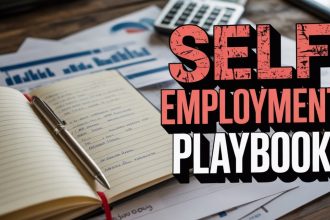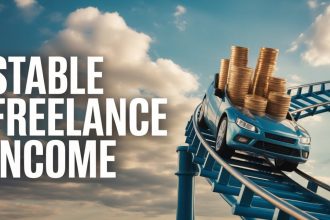Introduction: Why Most Budgets Fail
If you’ve ever tried to stick to a budget, you know the familiar cycle of frustration. It often feels restrictive, overly complicated, and, despite your best intentions, ends in failure. You might blame a lack of willpower, but what if the problem isn’t you? What if the conventional wisdom about budgeting is fundamentally incomplete?
The truth is that our financial behavior is driven by powerful psychological forces that simple spreadsheets often ignore. This article moves beyond generic advice to reveal five surprising but powerful truths about money management. Synthesized from academic studies, the principles of behavioral economics, and the hard-won experience of real people, these insights can fundamentally change how you think about your money—and finally make your budget work for you.
1. Financial Literacy Isn’t a Silver Bullet
We’re often told that the key to better financial decisions is more knowledge. If we just understood compound interest or the definition of a mutual fund, we’d naturally make better choices. But a growing body of research suggests this is a surprisingly weak assumption.
A broad review of studies in behavioral economics found that personal characteristics—like numeracy, a natural “propensity to plan,” or an individual’s “willingness to take financial risks”—are far more significant predictors of financial behavior than formal financial knowledge. The data shows that simply knowing more abstract financial concepts has a minimal impact on what people actually do with their money. As one comprehensive review concluded:
Financial literacy, whether the ability to answer correctly test questions on financial concepts or participation in financial education programs, appears to have little effect on outcomes of financial decisions.
This is a powerful and empowering takeaway. It shifts the focus away from the intimidating task of memorizing financial terminology and toward the practical, achievable goal of building simple systems and habits. You don’t need to be a financial expert to manage your money well; you just need a process that works with your brain, not against it.
2. The “Pain” of Spending Is a Feature, Not a Bug
The age-old “envelope system,” also known as “cash stuffing,” has seen a resurgence in popularity. While it may seem old-fashioned, its enduring power lies not in the paper envelopes themselves, but in the psychology of using physical cash.
As real-world users and financial writers have noted, using cash makes you acutely aware of your spending, helps curb impulse buys, and forces you to “think twice before you hand over your cash.” This isn’t just folk wisdom; it’s a core principle of behavioral economics. To understand why, we have to look at mental accounting, the set of cognitive shortcuts we use to organize and manage our budgets. While this process helps us simplify our finances, it also leads to a powerful phenomenon with credit cards known as “decoupling,” where the immediate pleasure of a purchase is separated from the delayed, abstract pain of payment. Swiping a card doesn’t feel like you’re losing anything tangible.
Handing over physical cash, however, forces you to experience the cost of a purchase in real-time. The most effective budgeting methods aren’t just about tracking numbers after the fact; they intentionally create friction and force a moment of mindfulness before a transaction. The goal, even if you don’t use physical cash, is to find ways to make the financial consequences of a purchase feel more real and immediate.
3. You’re Probably Budgeting with “Monopoly Money”
Many traditional budgeting methods are built on a foundation of theoretical money. You create a plan based on the income you expect to receive over the next month, forecasting how you’ll spend money you don’t have yet. This is where a radically different approach, Zero-Based Budgeting (ZBB), reveals a critical flaw in that logic.
The core principle of ZBB, as popularized by users of apps like YNAB (You Need A Budget), is simple: you can only budget the money you actually have right now. It’s the difference between a forward-looking fantasy and a present-day reality. One user on Reddit articulated this profound shift perfectly:
“I think the difference for me with this type of system is that you’re dealing with the real dollars in your bank account. It’s not ‘with my income I should be able to afford $500 to eat out every month’ but rather ‘oh, with the money I have right now, if I spend $500 on dining out I won’t be able to pay my utility bill.'”
This change from theoretical to actual money is so impactful because it forces you to confront real-time trade-offs. You can no longer rely on the illusion that future income will cover today’s spending. Instead, you must make decisions based on genuine scarcity—the entire point of a budget. This simple rule breaks the paycheck-to-paycheck cycle by forcing you to plan with the resources you have on hand, not the ones you hope for.
4. Your Budget’s Real Enemy Is the Unexpected
When a budget fails, we often blame overspending on lattes, online shopping, or other “wants.” We assume our lack of discipline is the problem. However, while it’s not a universal study, a fascinating look at the challenges faced by a group of financial management students at the University of Cagayan Valley in the Philippines reveals a common blind spot.
In a study of 176 students, when asked to list the problems they encountered while budgeting, the most frequently cited issue was “Unexpected Expenses.” This was followed by “Short Allowance” and, in a distant third, “Impulsive Buying.” For this group, the problem wasn’t a daily splurge; it was the car repair, the annual subscription renewal, or the unplanned medical bill that threw the entire system into chaos.
This finding was so significant that the researchers proposed a modification to the popular 50/30/20 rule (50% needs, 30% wants, 20% savings). Based on their data, they suggested that the 30% traditionally allocated to “wants” would be better allocated to “unexpected expenses” to more accurately reflect the financial realities people face. A successful budget isn’t just a tool for controlling daily spending; it’s a tool for building financial resilience. By actively planning for irregular expenses, you transform them from budget-destroying emergencies into predictable, manageable costs.
5. Aim for “Good Enough,” Not “Perfect”
The quest for the “perfect” budget can be so intimidating that it leads to quitting before you even start. One financial expert described the meticulous detail of zero-based budgeting as a “chore” that can “drive you crazy.” The pressure to optimize every single dollar can be paralyzing.
Behavioral economics offers a healthier, more sustainable alternative: the concept of “satisficing.” Coined by Nobel laureate Herbert Simon, satisficing describes how we use mental shortcuts to simplify complex decisions, ending our search not when we find the absolute best option, but as soon as we find one that is “good enough” to meet our goals.
This mindset is crucial for budgeting. Strict percentage-based rules, like the 50/30/20 rule, can be a “pipe dream” for individuals living in high-cost-of-living areas, where housing alone can consume 40% of their income. Trying to force your financial reality into a pre-defined, “perfect” box is a recipe for failure.
The ultimate goal of a budget isn’t to hit a set of perfect percentages. It’s to create a purposive plan—a “good enough” system—that helps you achieve your personal financial goals. This approach is more flexible, forgiving, and far more likely to stick in the long run.
Conclusion: A Wiser Way to Think About Your Money
Effective budgeting, it turns out, is less about rigid math and more about understanding our own psychology. It’s about building systems that acknowledge our mental shortcuts, plan for the messy reality of life, and prioritize consistent progress over unattainable perfection.
By letting go of the flawed conventional wisdom, we can adopt a more realistic and powerful approach to managing our finances. So, instead of asking, “What’s the perfect budget for me?”, what if the better question is, “What’s one small system I can build today to make my next financial decision a little bit wiser?”











